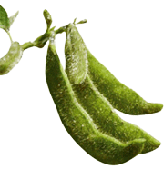Paraguayan's Health Minister commits herself to act against the poisoning of campesinos.
written by Jorge Zarate - December 11th 2008
“To take up this problem is an ethical compromise”, said Paraguayans health minister, Esperanza Martínez, announcing that a special Commission of which the Health Ministry and other state institutions forms part of, will control the impacts of fumigations with agrochemicals on the more than 2.6 million hectares that are being sown in the country. The minister said that it is necessary to have norms to regulate this issue. “At first it can be a decree that later sanctions a law; we have to take this up and stop worrying”, she explained.
In the year 2007 only 307 intoxications by agrochemicals were registered by the health system. Technicians of the Health Watch however calculate that this number should be multiplied with five, because of ignorance of medics, pressure to keep silent and other elements that were exposed during the discussion forum on “The problematic of pesticides in health”that was held on December 3rd in Asunción, organised by several Paraguayan NGO's.
The medical study “Congenital Malformations Associated with Agrotoxics” by Elena Bénitez, María Luisa Macchi and Marta Acosta [Download study]. These medics detected 52 cases of malformations during one year in the hospital of Encarnación; shocking pictures accompanied the presentation. “We didn't expect that they would react like this”, said Benítez, commenting on a series of threats and actions that pressure groups of sojeros undertook against the medics. “They went to the University to demand a dictum of scientific validity of our study, for example, she commented.
In the study it is stated that “the analysis of the data taken from the interviews comparing the healthy newborns with the newborns with a congenital malformation, they found the following significant associations:
If the housing was situated at one kilometre or less of fumigated agricultural fields, the babies had twice more risk to get congenital malformations. If there had been direct or accidental contact during pregnancy the risk increased three times. If the pesticides were being kept in the home, the risk increased 15 times. If there were earlier cases of congenital malformation in the family, the risk increased 6 times.” Forcible and silenced by the mass media of communication.
Testimonies and compromises
Also campesinos of several organisations and provinces gave direct examples on what is happening at this moment in the countryside as between October and March sowing and harvesting season enters and soy fields are getting fumigated. “We have 260 hectares surrounded by a sea of soy”, describes Genaro López of the Association of Farmers of Alto Paraná (Asagrapa), pointing out that after a long struggle they obtained that the fumigation was no longer done by plane and that now 'at least' they were using tractors. «The Health Minister never controls what is happening in our community”, he explained. Alto Paraná, Itapúa, Caníndeyu, San pedro and Caazapá are the most critical zones according to the registers, Graciela Gamarra, de Vigilancia Epidemiológica del MSP, pointed out and she assured that “there is a compromise to strengthen the national Register of intoxication cases by pesticides”.
Agrochemicals
Between February 2006 and March 2007 at least 52 cases of birth with congenial malformations were registered in the Regional Hospital of Encarnación (in the Southeast of Paraguay), all linked with the indiscriminate use of agrotoxics. Some 736 thousand tons of fertilizers, 8 million liters of herbicides, 1.700.000 liters of fungicides and 2.450.000 liters of insecticides were used in the year 2007.
The National Service of Vegetate Health could not precise which percentage of these are of the most toxic kind (red band). More than 300 cases of intoxicated persons are registered per year.



